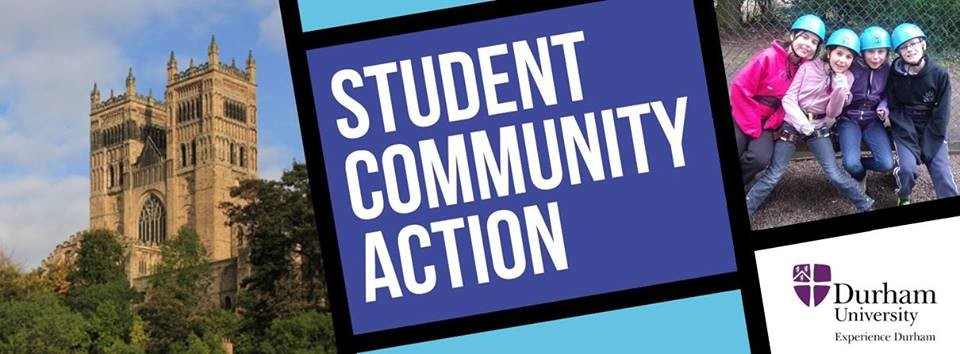BSc in Anthropology
Year 1
In your first year, you will receive a thorough grounding in the theory and practice of anthropology in the broadest sense, addressing the core disciplines of social and biological anthropology as well as interdisciplinary perspectives on culture, society and health. Currently, students take five modules in Anthropology and select one elective module offered by another department, including the option to study a module in a modern foreign language.
Compulsory modules:
People and Cultures
Human Evolution and Diversity
Being Human
Doing Anthropological Research
Health, Illness and Society.
Year 2
In your second year, you will develop a deeper and more complex grasp of anthropology and will gain "hands-on" experience of conducting research at one of our residential field sites on the compulsory Anthropology Field Course module, normally held in September prior to the start of your second year. You will also take a core module covering the diverse ways in which anthropological knowledge is constructed and theorised, as well as four elective modules that will enable you to pursue your interests in specific topics.
Compulsory modules:
Anthropology Field Course
Interrogating Anthropology
Evolution, Variation and Adaptation
Our Place in Nature.
Optional modules:
Kinship and Religion
Politics and Economics
Global Health and Disease
Sex, Reproduction and Love.
Year 3 (Year 4 if undertaking a Year Abroad)
In your final year, you will design and carry out your own dissertation project and have a free choice of advanced optional taught modules. Optional modules are generally based on the research expertise of staff, and reflect the University’s ideal of research-led education. Options available in the Department cover the full disciplinary spectrum, from the entirely biological to the entirely socio-cultural, or a mixture of anthropological sub-disciplines via the Specialised Aspects of Evolutionary, Health and Medical, and Social Anthropology modules. Typical topics that may be available include forensic anthropology, religious controversy, urban anthropology and public health. In your third year you are also invited to attend the regular round of research seminars given by visiting scholars or Durham-based researchers, and can participate in a key forum for current innovative research.
Core module:
Dissertation.
Optional modules:
Specialised Aspects of Evolutionary Anthropology (various topics)
Specialised Aspects of Social Anthropology (various topics)
Specialised Aspects of Medical Anthropology (various topics).
Intakes
- Sep
Application Processing Time in Days: 21
Minimum English Language Requirements
| English Level Description | IELTS (1.0 -9.0) | TOEFL IBT (0-120) | TOEFL CBT (0-300) | PTE (10-90) | |
|---|---|---|---|---|---|
| Expert | 9 | 120 | 297-300 | 86-90 | |
| Very Good | 8.5 | 115-119 | 280-293 | 83-86 | |
| Very Good | 8 | 110-114 | 270-280 | 79-83 | |
| Good | 7.5 | 102-109 | 253-267 | 73-79 | |
| Good | 7 | 94-101 | 240-253 | 65-73 | |
| Competent | 6.5 | 79-93 | 213-233 | 58-65 | |
| Competent | 6 | 60-78 | 170-210 | 50-58 | |
| Modest | 5.5 | 46-59 | 133-210 | 43-50 | |
| Modest | 5 | 35-45 | 107-133 | 36-43 | |
| Limited | 4 | 32-34 | 97-103 | 30-36 | |
| Extremely Limited | < 4 | < 31 | < 93 | < 30 |
Admission Requirement / Eligibility Criteria
Undergraduate Standard XII A*A*A Standard XII with an average score of 90% (best of 4 academic subjects) with any prerequisite subjects at 87% or higher. A*AA Standard XII with an average score of 87% (best of 4 academic subjects) with any prerequisite subjects at 85% or higher. AAA Standard XII with an average score of 85% (best of 4 academic subjects) with any prerequisite subjects at 85% or higher. AAB Standard XII with an average score of 84% (best of 4 academic subjects) with any prerequisite subjects at 85% or higher. ABB Standard XII with an average score of 83% (best of 4 academic subjects) with any prerequisite subjects at 85% or higher. Note: Standard XII from CBSE or CISCE Boards and some State Boards only are accepted for entry. State Boards considered on a case by case basis. Postgraduate Taught A 3, 4 or 5-year Bachelors degree from an approved Indian university with a score of 60%-70% depending on the institution. a. IELTS: 6.5 (no component under 6.0) b. TOEFL iBT (internet based test): 92 (no component under 23) c. Cambridge Proficiency (CPE): Grade C d. Cambridge Scale (CAE or CPE): 176 (minimum of 169 per component) e. Cambridge O'level English Language (1119-Malaysia; 1120-Brunei; 1125 or 1126-Mauritius; 1128-Singapore and 1123-all other countries) at grade C or above. f. Cambridge IGCSE First Language English at Grade C or above [not normally acceptable for students who require a Tier 4 student visa] g. Cambridge IGCSE English as a Second Language at Grade B or above [not normally acceptable for students who require a Tier 4 student visa] h. GCSE English Language at grade C or above i. Pearson Test of English (overall score 62 (with no score less than 56 in each component)) j. Trinity ISE Language Tests - Level III or above (with a pass in both modules)
- Course Type: Full Time
- Course Level: Bachelors/UG Degree
- Duration: 03 Year
-
Total Tuition Fee:
61500 GBP
Annual Cost of Living: 9207 GBP
Application Fee: N/A

